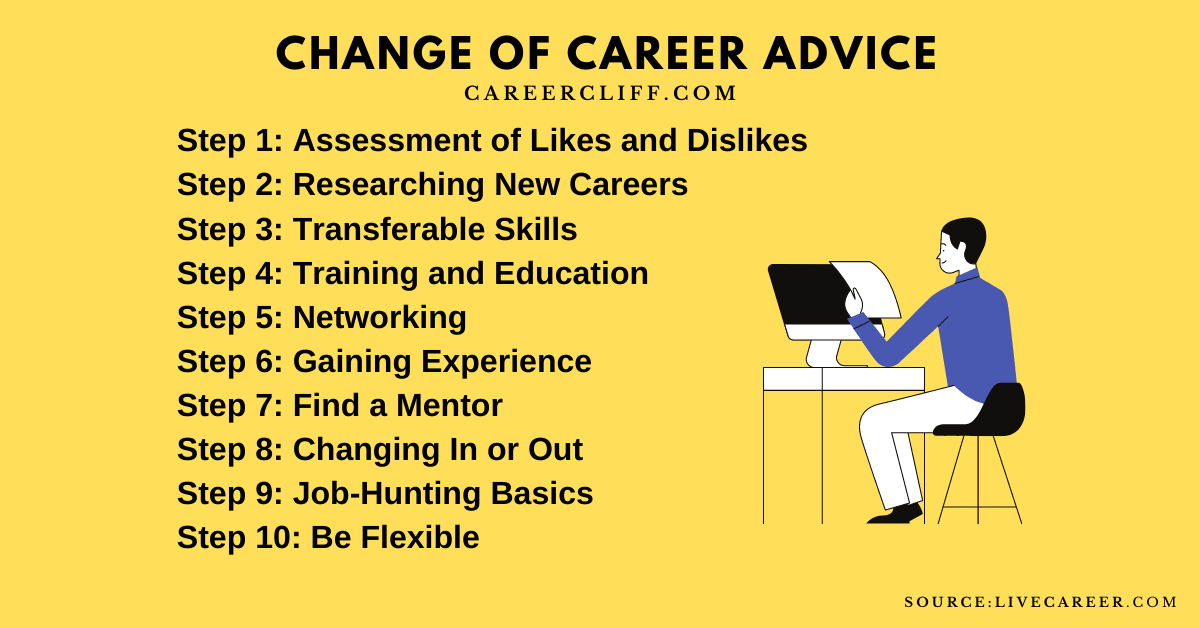
There are several steps you can follow if you are thinking about a career change. Stage one involves a gut-check. Stage two is a career experiment. Stage third involves applying for a new position and adapting to the new situation. If you are considering a career change, you should also consult with your significant other to make sure it will be a smooth transition.
Stage one is a gut-check
Gut judgments are important when it comes to career changes, especially if you have limited time. It is impossible to spend too much time considering your options. It's important to do so before making a major decision. It is always a good idea, even if you are certain about something, to confirm your gut feeling by adding additional evidence.

Stage 2 is a career experiment
Career exploration is an important part of career development. This is the first step towards building a professional network, and learning about a specific career field. You'll meet people from all industries to ask them questions and get answers about their jobs. For this research, the Career Center can give you packets.
Career experimentation is a great way to improve your skills, and build a persona. It can help you to understand the job requirements and how to get there. While it isn't a way to find a new job or a shortcut to success, a smart career experiment can be a powerful tool in your job search.
Stage three is the application for a new job
It is important to take action during this stage. You must prepare to learn new skills and retrain for your new career, as well as consider balancing your personal and professional life. Often, this process involves making a new morning routine, taking new courses or joining a group. You might also feel hopeful and excited during this stage. This transition can be hard and may lead to you becoming more strategic and reflective.
Stage four involves adjusting to the new you
Moving from Stage One into Stage Four of the career transition, you'll need to learn how you can balance your priorities when you start a new career. You have to let go friends and relationships that cause you pain. It is important to accept that not everyone can have the same impact as you. Accept that you are not the only one making decisions.

This stage of your career change will require you to learn new skills and train for your new position. Learn how to make your new job work for you and your family. There may be adjustments that you need to make, such as changing your morning routine, joining a group, learning new courses, or creating new plans. This can lead to mixed emotions. You might feel excited about starting a new career, but you could also feel overwhelmed by the change.